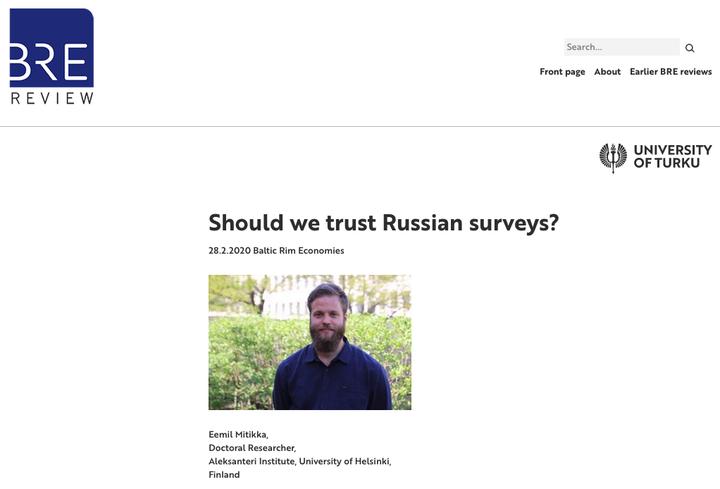Should we trust Russian surveys?

Abstract
Social surveys have been an important part of social sciences ever since George Gallup successfully predicted the re-election of Franklin D. Roosevelt. They aim to represent the opinions of a population, so that politicians, scholars and ordinary citizens could get a grasp of what is going on in society. With the development of statistical methods and the survey industry, the demand for social surveys has grown substantially. However, whereas surveys are thought to represent public sentiment somewhat accurately in a democratic context, there are more doubts about their reliability in undemocratic set-ups. Some critics maintain that surveys on non-democratic societies are unreliable and biased, because undemocratic political atmosphere is believed to distort opinion climate. As a researcher who studies Russia and uses survey data, I face the claim about biased and unreliable Russian surveys regularly, both in everyday and professional discussions. [text continues in the article…]